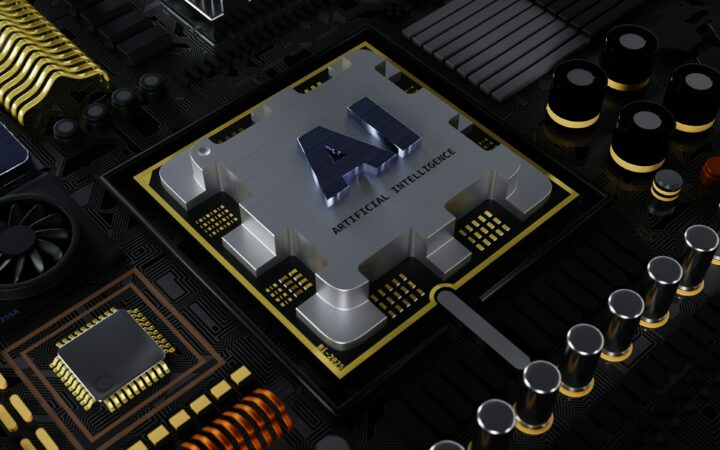Key Takeaways about Tech Trends 2023 [Deloitte report]
Written by
Kinga EdwardsPublished on

Deloitte’s Tech Trends report investigates the impact of emerging technology opportunities in various areas of innovation, including interaction, information, computation, and foundational aspects such as the business of technology, cyber and trust, and core modernization.
This time, the report showcases pioneering organizations and their current endeavors, highlights technologies and approaches that are expected to become standard within the next 18 to 24 months, and provides insights into potential future trends for the next decade.
So, stay with us and get valuable insights from Deloitte! 💪
Executive Summary
The report identifies six key trends.
Trend 1: focuses on the shift from traditional rectangular screens to immersive virtual experiences, including the metaverse, which will likely see increased adoption in the enterprise realm.
Trend 2: emphasizes the importance of trust in AI as machines take on tasks that require discernment and decision-making beyond basic calculations, highlighting the need for a new understanding of human-machine trust.
Trend 3: discusses the use of abstraction and automation, referred to as meta-cloud or supercloud, to simplify the management of multi-cloud environments, offering a centralized control panel for common services.
Trend 4: explores the need for flexibility in the tech workforce, suggesting a shift from competing for scarce talent to curating, creating, and cultivating skills within organizations.
Trend 5: focuses on decentralized architectures and ecosystems powered by blockchain technology, which offer the potential to distribute trust and create more credible and transparent systems.
Trend 6: highlights the modernization of legacy systems by connecting them with emerging technologies, leveraging mainframes and their valuable data to drive digital transformation.
Trend 1: Immersive Internet for the Enterprise
The evolution of technology has led to simpler and more intimate interactions with computers. The shift is now moving towards immersive virtual experiences, including the metaverse.
The acceptance of digital worlds has grown due to affordable AR/VR technology and the COVID-19 pandemic.
Now, businesses are investing billions in the metaverse, with an estimated market value of $800 billion by 2024. The metaverse is not a diminished proxy for in-person experiences but an enriched alternative to email and text chat. Also, augmented and virtual reality technologies are transforming the metaverse into an enterprise tool.

Source: Tech Trends 2023, Deloitte report
The fact that brands can charge a premium in the metaverse, offering unique experiences, is a game-changer. As a result, consumer spending and business involvement in the metaverse are expected to increase.
Moreover, enterprise simulations and augmented workforce experiences are valuable applications.
Exciting possibilities for the metaverse’s future include:
- sensory expansion,
- thought-based control,
- all-in-one devices,
- and spatial interaction.
Trend 2: Learning to Trust our AI Colleagues
In the past, computers were considered infallible machines that processed inputs into outputs without errors. Any issues that arose were attributed to human error rather than the computer itself. However, with the rise of artificial intelligence (AI) and its ability to perform tasks requiring discernment and decision-making, businesses are reevaluating their trust in machines.
As artificial intelligence (AI) becomes more integrated into business processes, trust in machines is gaining importance.
Organizations that embrace AI and build trust with their AI tools are more likely to achieve their goals and succeed. The focus is shifting from crafting the best algorithm to using AI effectively and ensuring that humans understand and agree with its decisions.

Source: Tech Trends 2023, Deloitte report
Transparency and explainability are key factors in building trust. Transparent data-collection methods and giving users control over data usage enhance trust. Algorithmic explainability allows users to understand the reasoning behind AI recommendations. Ensuring AI reliability, even if it’s not perfect, is crucial for adoption.
Looking ahead, AI business tools are emerging, but human creativity and collaboration with AI are still vital.
By leveraging the strengths of both humans and AI, businesses can improve job security and overall performance. Trust remains a critical factor in adopting and benefiting from the capabilities offered by AI tools.
Trend 3: Taming Multi-Cloud Chaos
Multicloud environments have become the norm for many enterprises, with a majority using two or more cloud platforms and some even using five or more. However, managing these multiple platforms can lead to complexities, including redundant services, security vulnerabilities, and difficulties in resource allocation.

Source: Tech Trends 2023, Deloitte report
To address this challenge, a concept known as meta-cloud or supercloud is gaining traction. It involves creating a compatibility layer that sits above the various cloud platforms, providing a centralized control and common interface for managing multiple clouds.
This layer leverages native technical standards through APIs, allowing applications to maintain strong security while benefiting from simplified management.
The benefits of meta-cloud include:
- reduced specialization requirements for cloud developers,
- improved security through centralized configuration,
- cost savings,
- and enhanced operational efficiency.
However, the adoption of meta-cloud as a service is still limited, and enterprises may need to build their own compatibility layer.
While meta-cloud presents a viable solution for simplifying multi-cloud management, future approaches may involve consolidation, centralization, and standardization to streamline cloud resources further while respecting the agility and self-service needs of end-users.
Trend 4: Reimagining the Tech Workforce
In the rapidly evolving tech landscape, organizations are facing a shortage of tech talent. Instead of competing for a limited supply of experienced professionals, a successful long-term strategy involves creating and cultivating new talent.
The traditional requirements of advanced degrees and years of engineering experience are becoming less critical as technology is going to be more democratized and decentralized.
Therefore, skills like creativity, problem-solving, and emotional intelligence are now considered greater differentiators for tech talent.
To address the talent shortage, technology leaders should reimagine the workforce and embrace flexibility as the best ability. This includes adopting a skills-based approach that focuses on both technical and human skills, exploring flexible sourcing options like gig workers and contractors, and offering flexible career paths.

Source: Tech Trends 2023, Deloitte report
Thanks to expanding their talent pool and promoting equity and diversity, organizations can navigate the tech talent crunch and pursue their transformation projects effectively.
Trend 5: Decentralized Architectures and Ecosystems
Decentralized architectures and ecosystems have the potential to rebuild trust in an environment of increasing mistrust.
Blockchain and Web3 technologies offer “trustless” systems that decentralize data, allowing organizations to leverage the power of blockchain for exciting and creative enterprise use cases.
Decentralized architectures and ecosystems powered by these technologies distribute trust across network participants, offering an antidote to diminishing faith in traditional institutions. By leveraging digital ledger technologies and decentralized business models, organizations can disintermediate trust and create a single version of irrefutable truth.
Trust-related use cases include:
- digital credentials and identities,
- external data-sharing,
- provenance and traceability,
- and micropayments and transactions.

Source: Tech Trends 2023, Deloitte report
Web3, the next iteration of the internet, aims to provide a decentralized and transparent environment where trust is not centralized but distributed among users. And thanks to embracing decentralized architectures, organizations can enhance credibility, bridge the digital trust gap, and regain the confidence of stakeholders.
These trustless systems have the potential to become arbiters of truth, offering a more secure and trustworthy digital ecosystem.
Trend 6: Mainframe Modernization Hits its Stride
The trend of mainframe modernization is gaining momentum as businesses seek to enhance the functionality of their existing mainframe systems by integrating them with emerging technologies. Despite the rise of cloud computing and next-generation capabilities like artificial intelligence, mainframes continue to provide value due to their hosting of critical applications that cannot easily be migrated to the cloud.

Source: Tech Trends 2023, Deloitte report
Rather than replacing legacy systems, organizations are now focusing on connecting them to modern applications using innovative connectors and middleware solutions. This approach allows each system to leverage its strengths while benefiting from the capabilities of emerging technologies.
Additionally, new integration layers and tools like NVIDIA’s Omniverse (used by BMW) are being utilized to improve connectivity and extend the functionality of mainframe systems.
Although there are challenges in reconciling legacy and modern applications, businesses recognize the long-term viability of mainframes and expect to expand their usage. Also, the decision to migrate applications to the cloud or maintain them in mainframes requires careful evaluation based on business requirements and cost considerations.
Over to You
With this report, you can gain valuable insight into the current technology landscape, the upcoming trends, and how they may affect various industries. Now you know which trends are becoming more and more important and powerful in the tech sector.


